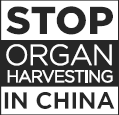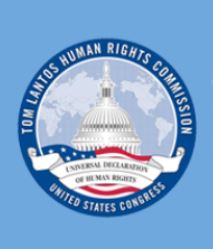May 13, 2022
Click HERE to watch the video on Tom Lantos Human Rights Commission website
Last month, the American Journal of Transplantation – the top peer-reviewed publication on the subject – published a large-scale computational textual analysis of 2,838 Chinese-language articles published in Chinese academic journals between 1980 and 2015 which supports the inference that transplant surgeons in the People’s Republic of China (PRC) removed organs, including hearts and lungs, in violation of the internationally-accepted “dead donor” rule, i.e., before donors have been (or could be) declared “brain dead.”
The PRC is widely alleged to be a major harvester and trafficker of forcibly acquired organs. Available information indicates that Falun Gong practitioners have been the primary victims of this cruel practice, and there are now allegations that imprisoned Uyghurs and other ethnic and religious minorities are also victims, based in part on accounts of mandatory medical testing in Xinjiang consistent with preparation for organ removal. Since 2015, Chinese authorities have claimed to only source organs from voluntary donors, but there are doubts as to the veracity of the claim. Data suggests that Chinese hospitals have performed many times more transplants than the highest estimates of ethically available donors can account for.
The final judgment of the Independent Tribunal into Forced Organ Harvesting from Prisoners of Conscience in China Tribunal, published in March 2020, concluded that forced organ harvesting from prisoners of conscience has been practiced for a substantial period of time involving a very substantial number of victims. On June 14, 2021, 12 United Nations Special Procedures mandate holders said they were “extremely alarmed” by reports of alleged ‘organ harvesting’ targeting minorities, including Falun Gong practitioners, Uyghurs, Tibetans, Muslims and Christians, in detention in China, and called upon the PRC government to “allow independent monitoring by international human rights mechanisms.”
The bipartisan Stop Forced Organ Harvesting Act of 2021, introduced in both the House and the Senate, would expand the U.S. government’s powers to combat organ harvesting, prohibit the export of organ transplant surgery devices to entities responsible for human organ trafficking, impose sanctions on individuals and government officials in countries who support human organ trafficking and forced organ harvesting, and introduce mandatory reporting on human organ trafficking in foreign countries and on U.S. institutions which train organ transplant surgeons.
Hosted by:
Christopher H. Smith
Member of Congress
Co-Chair, TLHRC
James P. McGovern
Member of Congress
Co-Chair, TLHRC
Opening remarks
Rep. Christopher H. Smith, Co-Chair, TLHRC
Written remarks
Rep. Gus Bilirakis, Member, TLHRC
Written remarks
Witnesses
Panel I
Sir Geoffrey Nice QC, Chair, China Tribunal, and Former Lead Prosecutor, UN International Criminal Tribunal for the Former Yugoslavia.
Written Remarks
Matthew P. Robertson, doctoral candidate, Australian National University (Canberra) and co-author, “Execution by Organ Procurement: Breaching the Dead Donor Rule in China,” published in the American Journal of Transplantation.
Written Remarks
Ethan Gutmann, China Studies Research Fellow, Victims of Communism Memorial Foundation and author of The Slaughter.
Written Remarks
Dr. Enver Tohti Bugdha, an oncology surgeon who was ordered by the Chinese government to carry out the first known case of live organ harvesting in 1994.
Written Remarks
Robert A. Destro, Former Assistant Secretary for Democracy, Human Rights and Labor, Department of State, and Professor, Columbus School of Law, Catholic University of America.
Written Remarks
Witnesses may be added.
Bios
Submitted for the Record
Statement for the Record Submitted by Professor Wendy Rogers of Macquarie University
Source:

